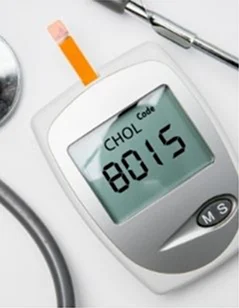Heart attacks, additionally referred to as myocardial infarctions, happen when the supply of blood to the heart is interrupted, denying the heart muscle oxygenation and nourishment. This can harm the heart muscle, leading to cardiac failure or even death in severe situations. While there are numerous therapies for heart attacks, the most effective strategy to prevent them is to identify and address the underlying risk factors before a heart attack happens.
Heart Attack Risk Factors
There are numerous risk factors for heart attacks, some of which may be modified and others which cannot. Modifiable risk factors include the following:
- High blood pressure, often known as hypertension, is the major cause of heart attacks. Hypertension can cause damage to the blood vessel walls, making it easier for plaque to form and impede blood flow to the heart.
- High cholesterol levels in the blood can lead to the formation of plaque in the arteries, increasing the risk of heart attack.
- Diabetes can damage blood vessels and raise the chance of plaque formation, increasing the risk of heart attacks.
- Tobacco use can damage blood vessels and raise the chance of plaque development, which can lead to heart attacks.
- Inactivity can contribute to the development of risk factors such as obesity, high blood pressure, and diabetes, all of which raise the risk of heart attack.
Age, a family history of heart disease, and gender are non-modifiable risk factors. Men are more likely than women to have a heart attack, while women's risk increases after menopause.
Also Read: How to Treat Influenza (Flu) | Home Remedies, Stopping the Spread, When to See a Doctor
Preventive Actions
Heart attack prevention focuses on identifying and treating the underlying risk factors. This may involve adjustments to one's lifestyle, such as frequent exercise, quitting smoking, and eating a heart-healthy diet. Medication to regulate blood pressure, cholesterol, and blood sugar levels may also be required.
While these precautions can help reduce the risk of a heart attack, they may not be enough for some people who are at high risk. Other preventive actions may be offered for these individuals.
New Preventive Care Advances
Several novel advancements in preventive care for heart attacks are being researched and developed.
- Genetic Testing: Researchers are investigating the use of genetic testing to identify people who may be predisposed to heart attacks due to hereditary factors. This testing can assist identify those who may require more active preventive treatments, such as medication or surgery.
- Aspirin Therapy: Aspirin is a popular over-the-counter drug used to prevent heart attacks. Researchers are investigating the use of aspirin therapy in people who are predisposed to heart attacks, such as those with a family history of heart disease or those who have additional risk factors.
- PCSK9 Inhibitors: PCSK9 inhibitors are a new family of drugs used to decrease cholesterol levels in those who are at high risk of heart disease. These drugs function by inhibiting the action of a protein in the liver that controls cholesterol levels.
- Lifestyle changes: Changes in lifestyle, such as increasing physical activity, improving food, and reducing stress, can help reduce the risk of heart attacks. Lifestyle adjustments alone may be sufficient to avoid a heart attack in some people.
- Telemedicine: The epidemic of COVID-19 has expedited the development of telemedicine, which allows patients to get medical care remotely via video or phone consultations. This technology can be especially beneficial for people who are at a higher risk of having a heart attack but are unable to visit a healthcare physician in person. Telemedicine can assist patients in managing risk factors and receiving preventative care without requiring them to leave their homes.
- Cardiac Rehabilitation: Cardiac rehabilitation is an exercise, education, and counselling programme meant to assist those who have suffered a heart attack or other heart problem. By improving cardiovascular fitness, managing risk factors, and promoting healthy lifestyle behaviours, the programme can help individuals lower their risk of future heart attacks.
Also Read: What are the Signs of a Stroke?
Summary
Preventing heart attacks is a vital objective for medical care, and there are many methods that decrease the risk of heart attacks. Lifestyle adjustments, such as frequent exercise and eating a heart-healthy diet, can be helpful in lowering the risk of having a heart attack. Furthermore, multiple medications are available for the treatment of risk factors such as high blood pressure, high cholesterol, and diabetes.









%20(1).png)
.png)
%20(1).png)


%20(1).png)




%201.png)
